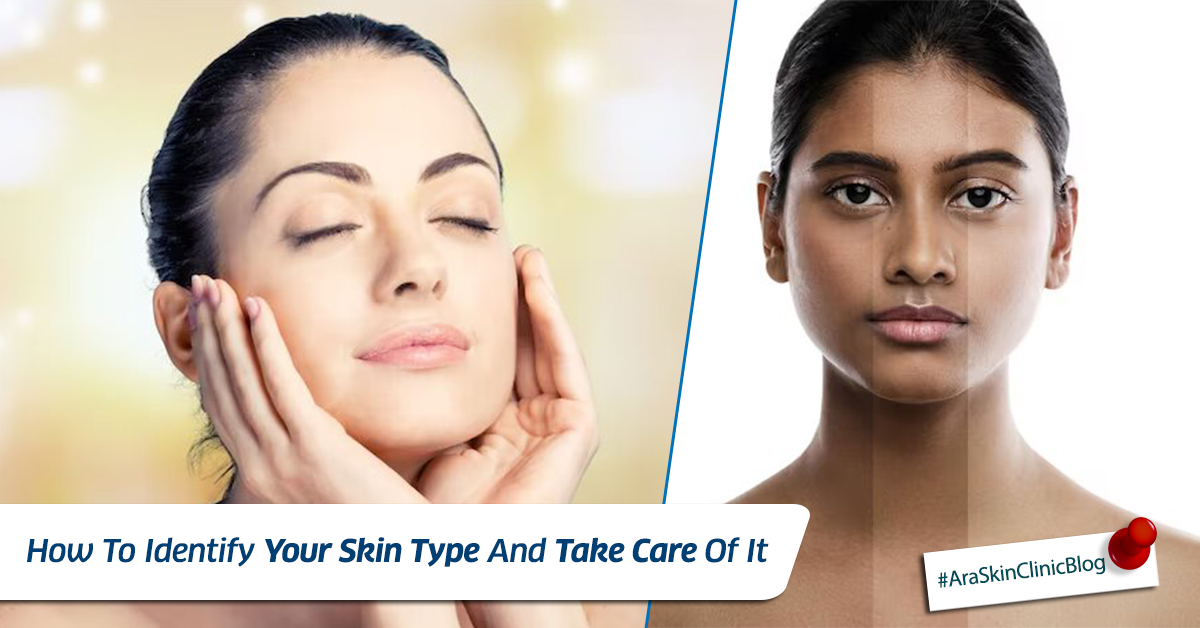Taking care of your skin means taking care of your health, and that’s where knowing your skin type comes in. The purpose of this article is to provide you with five basic steps you need to follow in order to determine your skin type, and to identify the specific steps you need to take to maintain it.
You should cleanse, tone, exfoliate, moisturize, and protect your skin. Each step is important, but some are more essential than others based on the type of skin you have.
Describe 5 types of skin
The five types of skin are normal, oily, dry, combination, and sensitive.
1. Normal skin – Normal skin is one of the healthiest and most balanced types of skin. It has a balance between sebum production and sweat production.
A normal complexion includes smooth texture, fine pores, no sensitivity, no breakouts, and a radiant appearance.
If you have normal skin, you don’t have to pay much attention to skin care routine. In addition to hydrating your skin, you should gradually establish a routine to provide some hydration to the skin that may dry out. Make sure you keep it healthy by drinking plenty of water every day.
2. Oily skin – Oily skin tends to produce more oil and is more likely to develop acne.
Oily skin includes greasy skin, open pores, breakouts, whiteheads, blackheads, and other blemishes.
If you have an oily complexion, it’s best to cleanse your face with mild soap or cleanser in the morning before putting on make-up. You can opt for a nightly cleansing session as well if you’re able, though one daily wash should suffice. Additionally, it’s essential to stay hydrated with plenty of water intake — reducing sebum production — and incorporate an oil-free moisturizer into your routine. To fortify protection from sun damage, be sure to use a sunscreen specifically formulated for oily skin if that’s the case.
3. Dry skin – Dry skin refers to a lack of moisture in the skin. It usually appears as flaky or dry skin, usually on the face, arms, and legs.
Dry skin includes flaky and rough skin, dry texture, visible lines, and darker complexions.
A lotion-based, lightweight moisturizer is recommended if you have dry skin. Moisturizing your skin regularly will keep it hydrated and prevent it from producing less oil. Use a lotion-based, lightweight moisturizer. Ensure that your skin is kept moist by drinking enough water. It’s best to take shorter showers. No more than twice a day. Use sunscreen to prevent dehydration.
4. Combination skin – Combination skin is the result of a combination of oily and dry skin. It is often characterized by a greasy appearance. Despite being oily and more sensitive to the damaging effects of the sun, combination-type skin requires protection from direct sunlight.
Symptoms of combination skin include: Oily T-zone and dry cheeks, Skin breakouts only on forehead, chin, and nose, Sensitive cheeks, Large pores, and Shiny skin.
If you have combination skin, regular moisturizing and drinking enough water will help keep your skin hydrated, without causing excess oil production. To avoid clogged pores, don’t overdo it with washing – twice a day is the recommended amount. Over washing can strip away necessary oils and make sensitive skin more prone to oiliness. Last but not least, sunscreen is essential to protect yourself from UV rays; an oil-free product would be ideal for this purpose.
5. Sensitive skin – If your skin hurts when you apply moisturizer or sunscreen, you may have sensitive skin, which has an exaggerated reaction to chemical irritants.
Symptoms of sensitive skin include: itching and redness, flaky skin, skin feeling tight and itchy in the summer and oily in the winter, skin reacting to skin care, etc.
If you have sensitive skin, then it is essential to take all the necessary precautions when going out in the sun. Using sunblock with a SPF of at least 15, as well as avoiding products that contain alcohol and fragrances, will help keep your skin protected. Moisturizers and oils can be used for added hydration and nourishment. Keep this in mind every time you step out!
If you have any questions regarding treatment or medication, you can consult our dermatologist at ARA skin and hair clinic in Bangalore.


